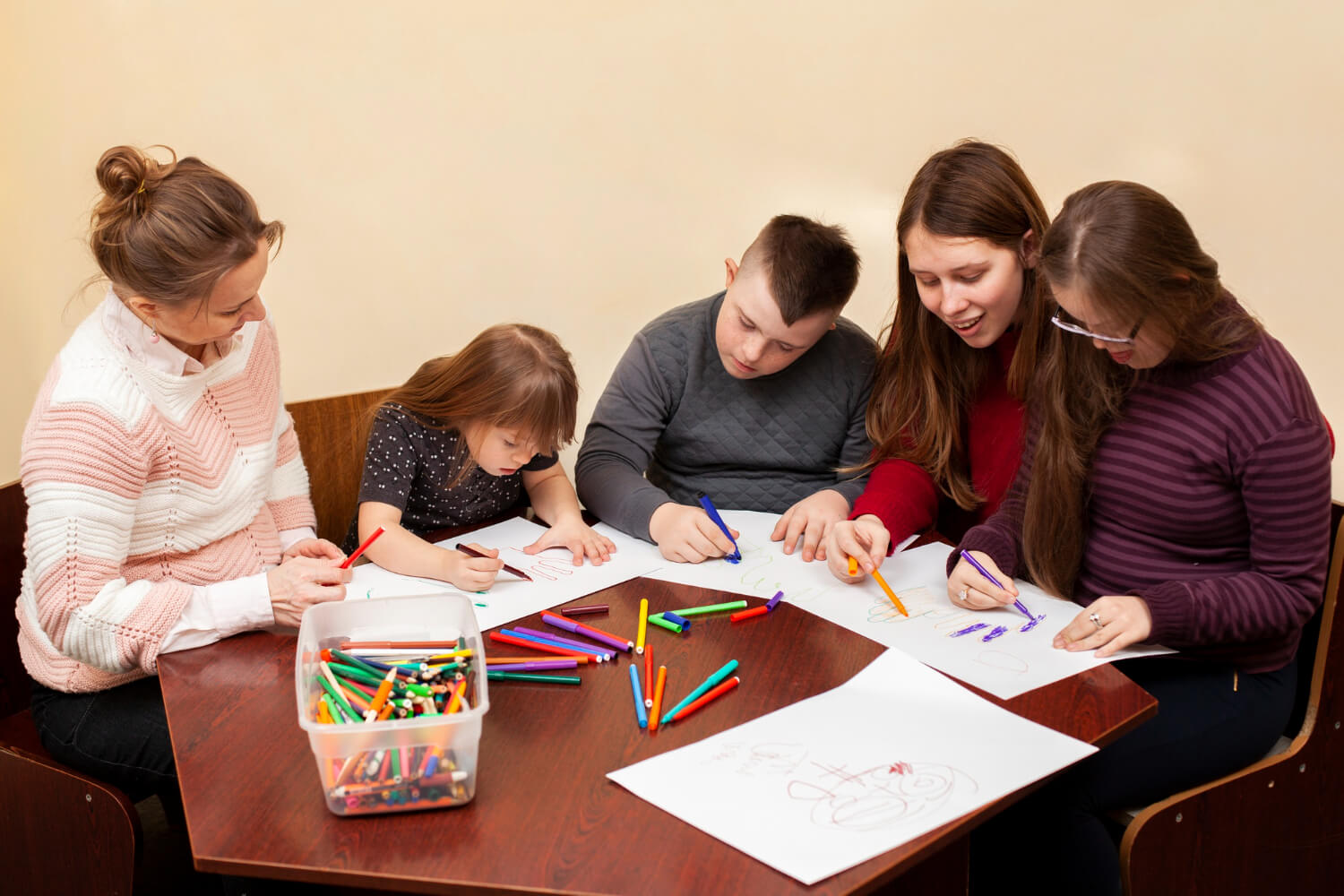
Every child is a curious little explorer who is eager to discover more about the world. Pre-nursery is a special moment when young children’s minds are like sponges, soaking up information at an amazing rate. What better approach to encourage their cognitive development as parents and carers than through enjoyable and stimulating activities?
In this article, you will get educated on 20 enjoyable activities designed to develop your preschooler’s cognitive skills. We’ll make it easy to understand, connectable, and heartfelt, much like the love you feel for your child.
The goal of these activities is to make lasting memories while improving your child’s thinking, problem solving, and memory skills. Whether it’s a game of “I Spy” during a nature walk, building with colorful blocks, or storytelling adventures, we’ll show you how to make learning an integral part of play. So, join us in this journey where we will discuss on developing the intellectual capabilities of little minds
What Are Cognitive Skills?
Cognitive skills, sometimes referred to as your thinking abilities, are like your mental superpowers. They’re the special talents your brain uses to handle information, crack tough puzzles, make choices, and soak up fresh knowledge. These skills are the key ingredients in a child’s magical journey of thought, understanding, and discovery at Nagpur schools. They cover a whole bunch of cool abilities, like memory tricks, attention wizardry, language power, reasoning riddles, and even a touch of creative sparkle.
Importance of Cognitive Skill Development for Pre-Nursery Children:
Developing cognitive skills in pre-nursery kids is like laying the first stone for a prosperous future. Let’s now talk about why this is super important:
Building Blocks for Learning: Intellectual skills are like the superhero sidekicks of learning. They provide the essential abilities needed for rocking subjects like reading, math, and science. Without these skills, a kiddo might find learning a bit tricky.
Super Problem Solvers: kids become awesome problem-solvers once they develop their learning abilities. They can figure out puzzles, tackle challenges, and even deal with everyday stuff like making choices. These skills aren’t just for school; they help kids handle life’s little curveballs.
Language Legends: Cognitive skills are the magic behind learning to talk and understand what others say. When kids develop these skills, they can express themselves better, chat with pals, and become language wizards. Talking well is key for both school smarts and being a great buddy.
Creative Geniuses: When kids have strong brain powers, their imagination goes wild! They can think up cool, out-of-the-box ideas, which is super important for solving problems and growing as a person. Being creative lets them explore their world and come up with cool new stuff.
Social Stars: When kids have sharp minds they understand how to get along with others. They learn to see things from someone else’s point of view and get what others are feeling. These skills help them make friends and be awesome team players.
Emotion Ninjas: Cognitive skills also help kids manage their feelings and handle stress like champions. When they’ve got these skills, they can understand and deal with their emotions, which is super important for staying happy and strong, even when life gets a little crazy.
So, helping pre-nursery kids develop their intelligence is like giving them a powerful toolkit for school and life. These skills aren’t just about getting A’s in class. They are more about helping children grow into awesome, resilient, and adaptable humans who can take on whatever the world throws their way.
20 Activities for Developing Cognitive Skills in Nagpur Schools:
Now, let’s quickly jump into 20 activities that are not only effective but also loads of fun for pre-nursery children in Nagpur:
- Storytime: Reading to your child is one of the most fundamental activities for cognitive development. It enhances language skills, vocabulary, and listening abilities. Choose age-appropriate books with colorful illustrations to capture your child’s imagination. Engage them in discussions about the story and characters to encourage critical thinking.
- Puzzles: Jigsaw puzzles are excellent for promoting problem-solving skills in young children. They also help develop fine motor skills as kids manipulate puzzle pieces to fit together. Start with simple puzzles with large pieces and gradually progress to more complex ones as your child’s skills improve.
- Memory Games: Memory card games, such as matching pairs, are fantastic for enhancing memory and concentration. They encourage children to pay attention to details and remember the location of cards, fostering cognitive skills like memory retention and recall.
- Drawing and Coloring: Encourage creativity and fine motor skills by providing coloring books, crayons, and drawing materials. Let your child express themselves through art, and ask them about their creations, stimulating their imagination and communication abilities.
- Shape and Color Sorting: Sorting shapes and colors is a great way to teach kids about categorization and differentiation. Use objects like building blocks or everyday items to help children identify and group shapes and colors.
- Counting Games: Use everyday objects like toys, fruits, or household items to teach counting and basic math skills. For example, ask your child to count how many apples are on the table or how many blocks they have.
- Building with Blocks: Building with blocks not only fosters spatial awareness and creativity but also teaches problem-solving and engineering concepts. Children can experiment with different structures and learn about balance and stability.
- Nature Walks: Exploring the outdoors is an ideal way to stimulate observation and curiosity. Take your child on nature walks in your garden or a nearby park. Encourage them to discover and discuss the various plants, animals, and natural elements they encounter.
- Role Play: Role-playing allows kids to use their imagination, practice social skills, and enhance creativity. Provide costumes and props to inspire different scenarios, such as playing doctor, chef, or explorer.
- Cooking Together: Cooking is an excellent way to teach sequencing, measurement, and following instructions. Involve your child in simple cooking activities like making sandwiches or baking cookies. This hands-on experience helps them understand the importance of step-by-step processes.
- Music and Rhymes: Singing and dancing not only make learning fun but also improve memory and rhythm. Sing nursery rhymes and songs together, and encourage your child to join in. Musical instruments like tambourines and shakers can also be introduced for added engagement.
- Pattern Recognition: Pattern recognition activities involve identifying and creating patterns using objects, shapes, or colors. Start with simple patterns like ABAB or ABCABC and gradually introduce more complex ones to challenge your child’s cognitive abilities.
- Pretend Play: Encourage children to invent their own stories and scenarios through pretend play. Provide them with props and costumes to support their imaginative play. This activity promotes creativity, problem-solving, and communication skills.
- Matching Games: Matching games require children to find and pair objects or cards with identical symbols or pictures. These games enhance visual discrimination, concentration, and memory.
- Scavenger Hunts: Create treasure hunts with clues and riddles to promote problem-solving and exploration. Scavenger hunts encourage children to use their critical thinking skills to decipher clues and find hidden objects.
- Board Games: Classic board games like “Candy Land” and “Chutes and Ladders” are not only fun but also teach important skills. They help kids learn turn-taking, counting, and strategic thinking.
- Gardening: Planting and caring for a garden instills a sense of responsibility and observation. Children can learn about plant growth, the importance of watering and nurturing, and even basic botany concepts.
- Lacing Cards: Lacing and threading activities with cards or beads enhance fine motor skills. These activities also teach patience and concentration as children thread strings through holes.
- Science Experiments: Simple science experiments, such as mixing colors or observing the behavior of objects in water, can spark curiosity and foster critical thinking. Science activities allow children to explore the world around them and ask questions.
- Sensory Play: Sensory bins and activities allow children to explore various textures, smells, and tastes. Create sensory experiences using materials like sand, rice, water, or different textured objects. These activities help children develop their sensory perception and creativity.
Incorporating these 20 activities into your child’s daily routine or educational curriculum at Nagpur schools can provide a strong cognitive foundation while ensuring they have a great time learning and exploring the world around them. It’s important to remember that children develop at their own pace, so be patient and supportive as they engage in these activities.
Summary
To sum up the article, we would like to say that nurturing cognitive skills in pre-nursery children is a priceless gift that sets the stage for a lifetime of learning and personal growth. With these 20 activities, the journey towards cognitive development in Nagpur schools becomes not only effective but also an adventure filled with joy and discovery. So, let’s get started on this exciting educational journey with our little ones.




